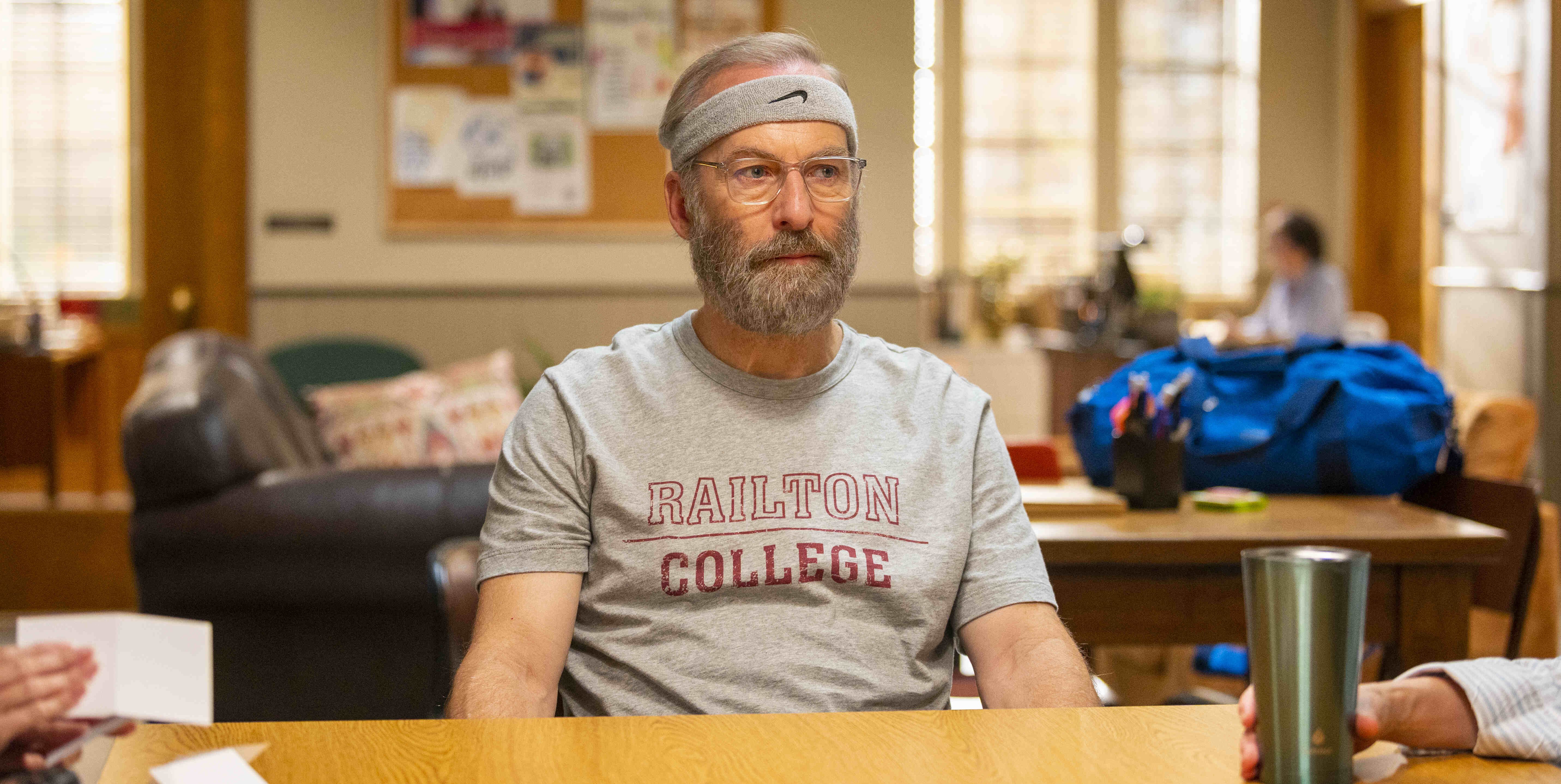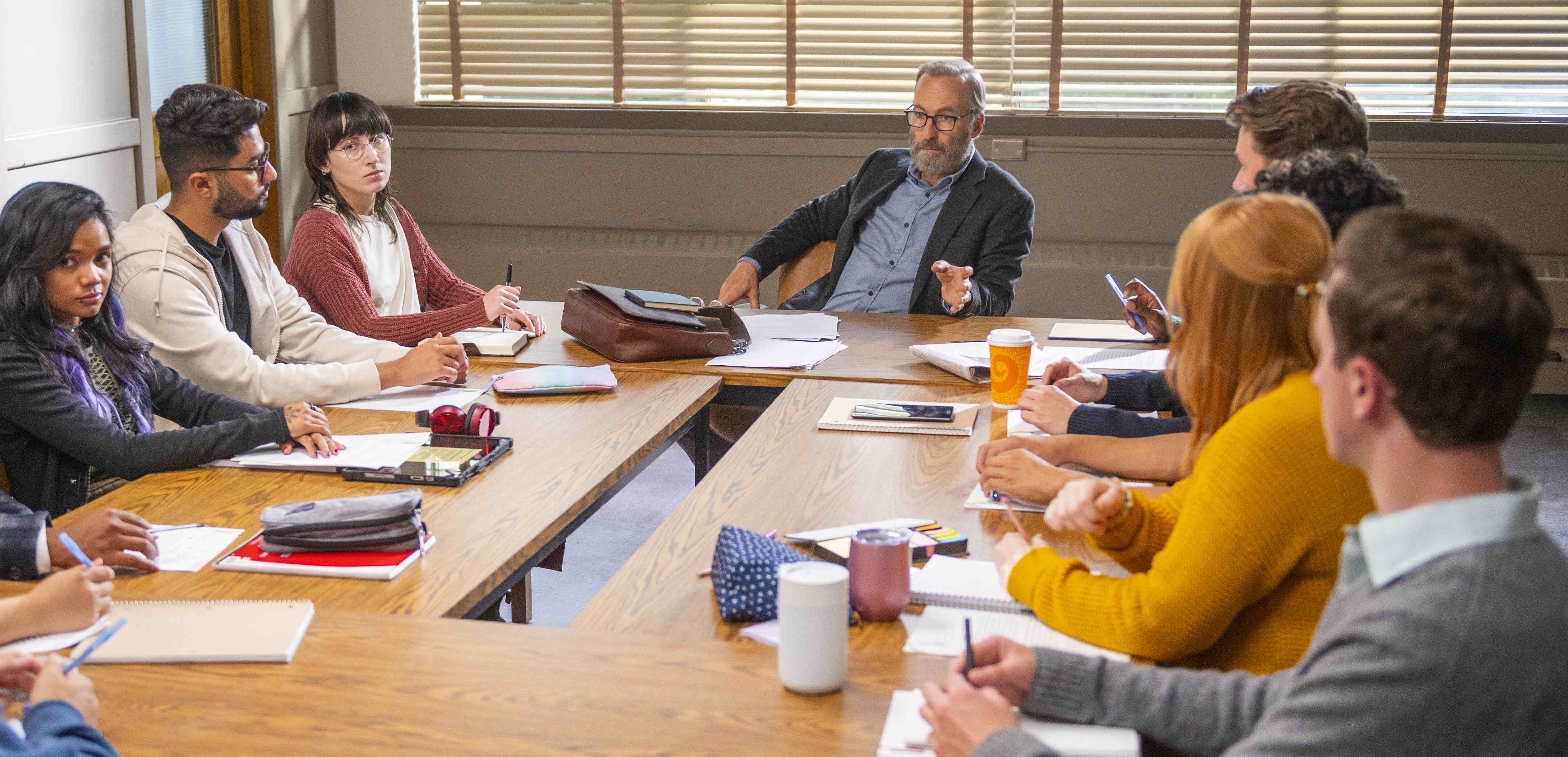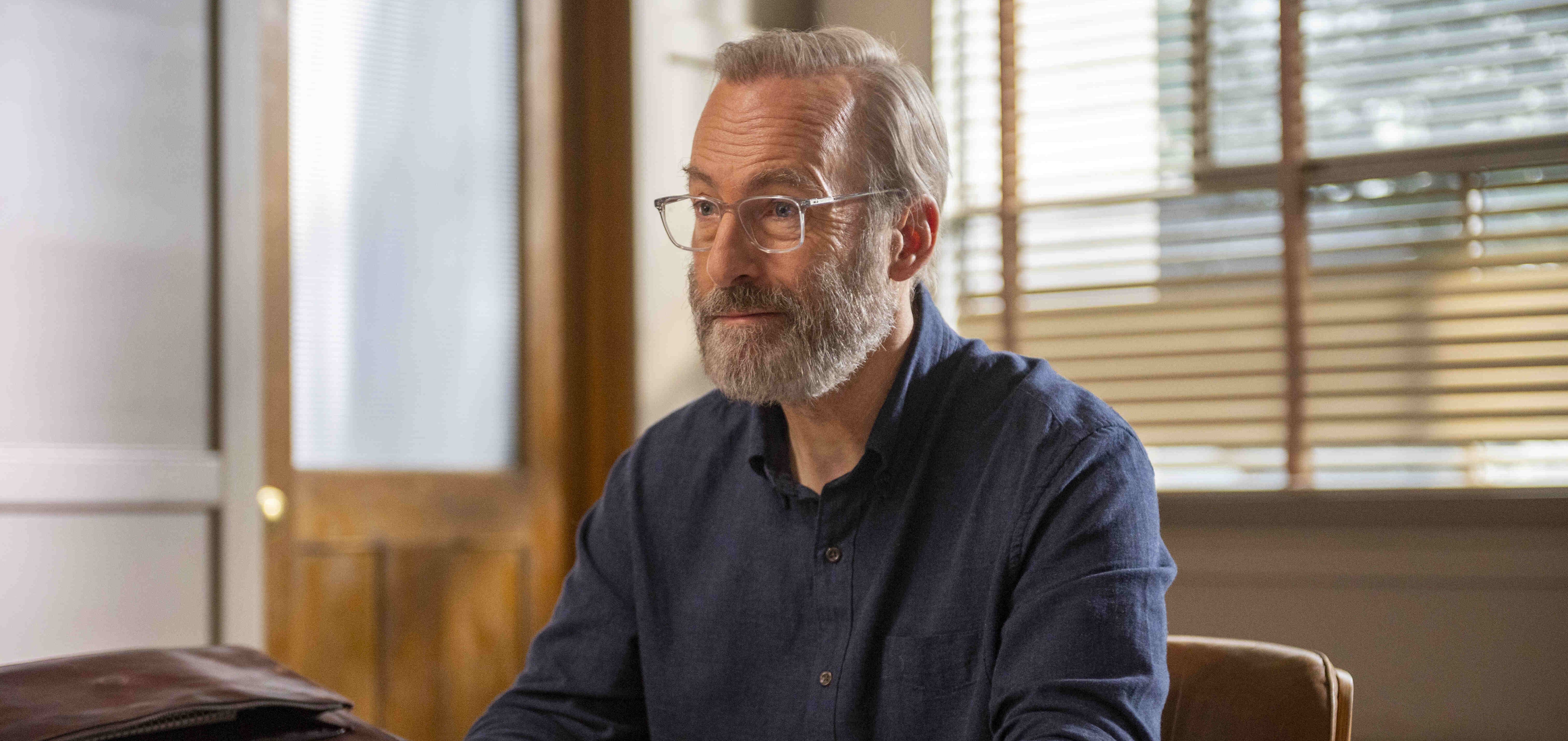Developed by Paul Lieberstein and Aaron Zelman, AMC’s drama series ‘Lucky Hank’ revolves around William Henry Devereaux, Jr., the chairman of Railton College’s English department. Although job security is Hank’s least concern as a tenured professor, his students demand his departure from the college for describing the institution as mediocre. Hank navigates his personal and professional lives through several such chaotic episodes, only to confront the mid-life crisis in no time. The comedy-drama explores the multidimensions of middle age and the challenges one faces to overcome the same realistically, making one intrigued about the story’s possible roots in reality. So, is the series based on true events? Let us provide the answer!
Lucky Hank: Inspired by Author’s Academic Experiences
‘Lucky Hank’ is partially based on a true story. The comedy-drama is the television adaptation of the novel ‘Straight Man’ by Richard Russo. Although the protagonist William Henry Devereaux, Jr. is fictional, his experiences as an English professor are partially based on Russo’s experiences at Southern Illinois University Carbondale, Southern Connecticut State University, Penn State Altoona, and Colby College also as an English professor. The author wanted to write a “serious” campus novel that explores the mid-life crisis in the setting of an academic world that is “never more than a surface.”

The experiences Russo had as an English professor became the foundation of his novel. “Straight Man was the easiest of my books to write and the funniest. Part of the reason it was the funniest was that it was the easiest. There’s Hank suffering and trying to pass that stone, and there’s also a kind of suffering of middle age, he may be losing his wife, there’s something going on with his daughter. It’s not like there’s nothing at stake, but those stories of academic absurdity I had been storing for years,” Russo said in an interview given for Eastern Washington University’s Willow Springs.
Russo partially based several characters in the novel on professors and others who worked with him at these aforementioned educational institutions. Oscar Nunez’s Dean Rose in the series can be paralleled to Russo’s Dean at Penn State Altoona, located in Logan Township, Pennsylvania. Like Hank and Rose, Russo and the dean used to discuss budget restraints and limitations that made the latter’s job difficult. Russo conceived the character Campbell “Orshee” Wheemer, the novel counterpart of Shannon DeVido’s Emma Wheemer, partially based on a colleague at Colby College, located in Waterville, Maine. Russo’s colleague didn’t really tolerate the independent use of male pronouns in reality.

Although real-life individuals did inspire Russo to conceive certain characters, the author seemingly heavily fictionalized them for dramatic purposes. In addition, the author also combined his experiences from four institutions to form Hank’s experiences as a professor at the singular Railton College. Russo admitted that there weren’t drastic differences between the departments he was part of in these institutions. “Most of the stuff came from other campuses [rather than Colby College], other English departments, but they’re all the same,” Russo said in an interview given to Maine Voices Live.
Co-showrunners Paul Lieberstein and Aaron Zelman set their television adaptation in the present day rather than in the 1990s, the period in which the novel is set. Lieberstein and Zelman made the characters in the novel more “diverse” and added “more women and youth” into the narrative. They were adamant about the show reflecting the present time to make their creation not a throwback to the “stodgy old English department of yore.” Russo, who wrote the source novel, approved the same as well. “The academic lunacy, it needs to be updated a little, but it’s still there. It’s still a feature of English departments,” the author added in the Maine Voices Live interview.
Read More: Where Is Lucky Hank Filmed?


You must be logged in to post a comment.